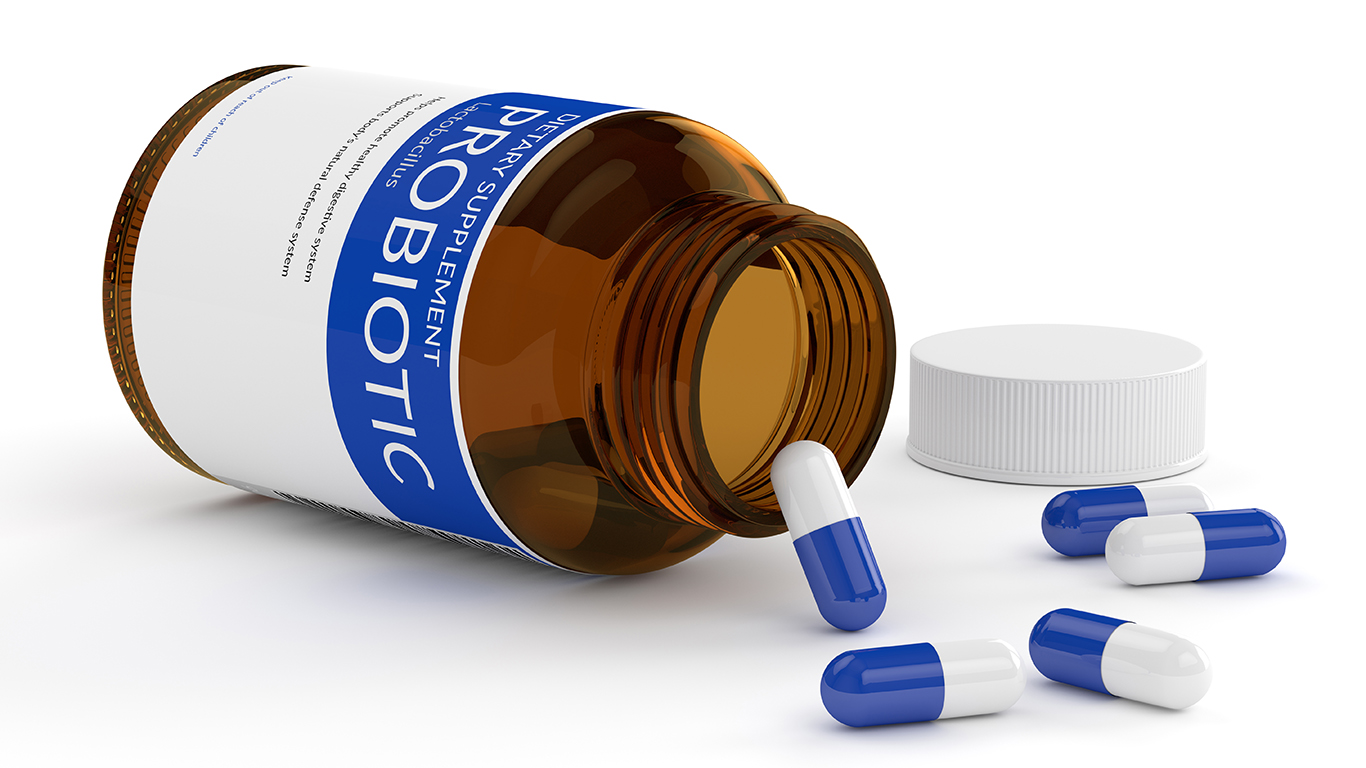Taking probiotic supplements to reinstate the balance between good and bad bacteria, which coexist in the gut, and improve health is increasing in popularity. So much so that an estimated $2.5 billion was spent on probiotics supplements in 2018. About $10 billion was spent on foods and drinks that contain the living microorganisms.
With sales booming, most people would think there must be a lot of scientific evidence behind the benefits of probiotics. However, this is not exactly the case. A lot of research, while promising, is still being done. But many studies have small sample sizes and lack follow-up data.
Probiotics work by decreasing the number of harmful bacteria in the intestines. They are mostly taken to improve digestion, but some research suggests they may also be helpful in treating skin conditions like eczema and even seasonal allergies.
Just as there are many different bacteria in a person’s gastrointestinal microbiota, there are many different type of probiotics, each with its own effect on the body. This is also what makes taking the right dosage tricky.
To determine everything you need to know about probiotics, 24/7 Wall St. consulted a doctor specializing in internal medicine and a certified clinical nutritionist, and reviewed scores of studies and meta-analyses published in medical journals about the benefits and side effects of probiotic supplements.
Click here to read about everything you need to know about taking probiotics.

1. Probiotics and weight loss
“Weight loss is really the end result of getting healthier,” Jill Place, certified clinical nutritionist, said. “To say that supplements are good for weight loss is like saying aspirin is good for cancer.” You have to look at the underlying cause for being overweight and address it, she noted.
Studies examining probiotics’ effect in reducing body weight and Body Mass Index (BMI) have been done, but the results are not definitive. Some found the supplements helped newborns gain weight, but had the opposite effect in adults, suggesting possible bias in reporting favorable results. Other research has shown that probiotics help the body by speeding up fat metabolism, improving insulin sensitivity, and reducing inflammation, but the sample sizes were small and there was no follow-up.

2. You don’t need them if you’re in good health
There is not enough evidence about probiotics’ effect on people in generally good health, Dr. Sari Eitches, an internist in Los Angeles, California, said. Most of the research into these live microorganisms is done with people who already have digestive or other health problems.
While use of probiotics by healthy people has been shown to increase the number of good bacteria in the gut, thus improving the immune and digestive systems, the changes were not persistent. In other words, your gut bacteria will return to previous levels when you stop taking probiotics.
“We already have a lot of good bacteria,” Eitches said. So feed it. To keep a healthy balance you should watch what you eat, she noted. “For general health, consume foods that are rich in probiotics as well as prebiotics.” Prebiotics are usually high fiber foods and whole grains, greens, onions, bananas, garlic, and soybeans.
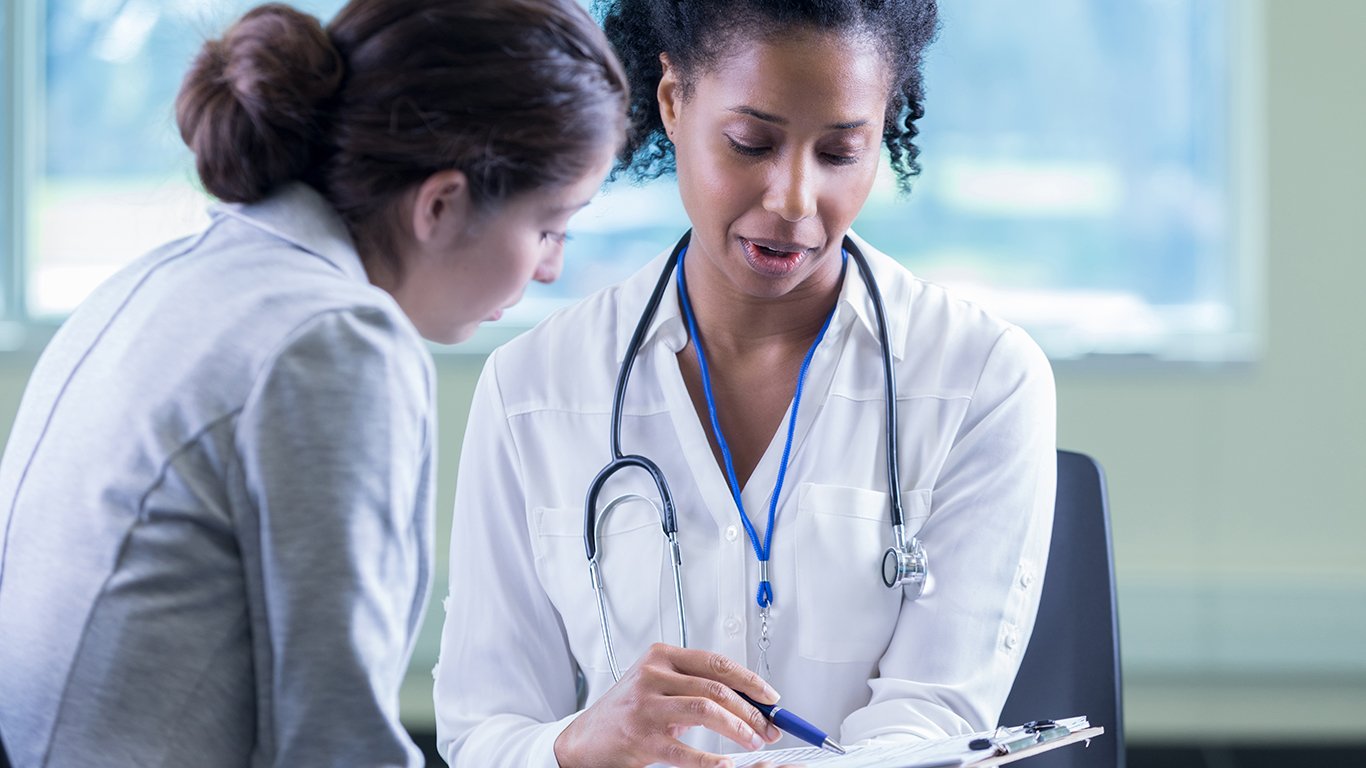
3. You need a specific strain for specific disease
The most scientific evidence for probiotics relates to their effect in treating GI issues and urinary infections, Eitches said. Probiotic strains of Lactobacillus are used to treat UTIs and recurrent yeast infections in women, she noted. Other strains that have been tested were not as effective.
Medical analysis reviewing 47 years of literature and trials for probiotics efficacy concluded that there is strong evidence doctors need to consider different strains for different diseases. For example, some Lactobacillus species helped prevent antibiotic-associated diarrhea but others did not.
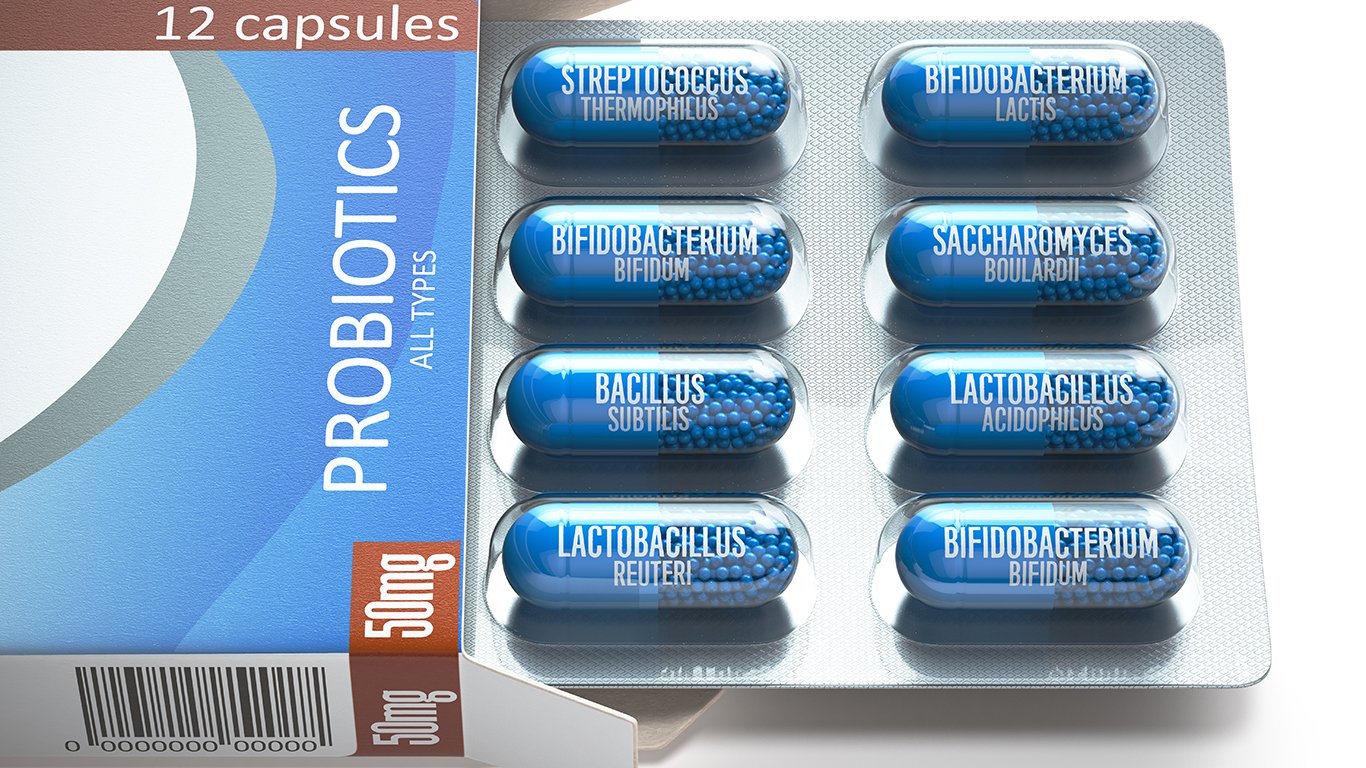
4. How to know which probiotics you need
“You need to be specific when taking probiotics,” Eitches said. There are some tests to find out which type of bacteria you may need to balance the microbiota, she added. “This is still a little bit in the experimental phase as they are not 100% indicative of what’s really going on in the gut.”
“It’s also hard to know the right dosage,” Place said. People would normally take the recommended dose on the label, but it may vary depending on the purpose, duration, and if a person has a weak immune system. “It’s really important to work with a professional,” she noted. There is an abundance of probiotic supplements on the market and the number of living organisms in them varies from millions to over a trillion.

5. Probiotics won’t help if your diet is still poor
“Probiotics are not penicillin for a lousy lifestyle,” Place said. “They are just a patch and won’t work if you don’t improve your diet.” Start by removing foods that are feeding the bad bacteria in your gut, such as fast foods, which are high in fat, simple sugar, artificial sweeteners, and carbs, she noted.
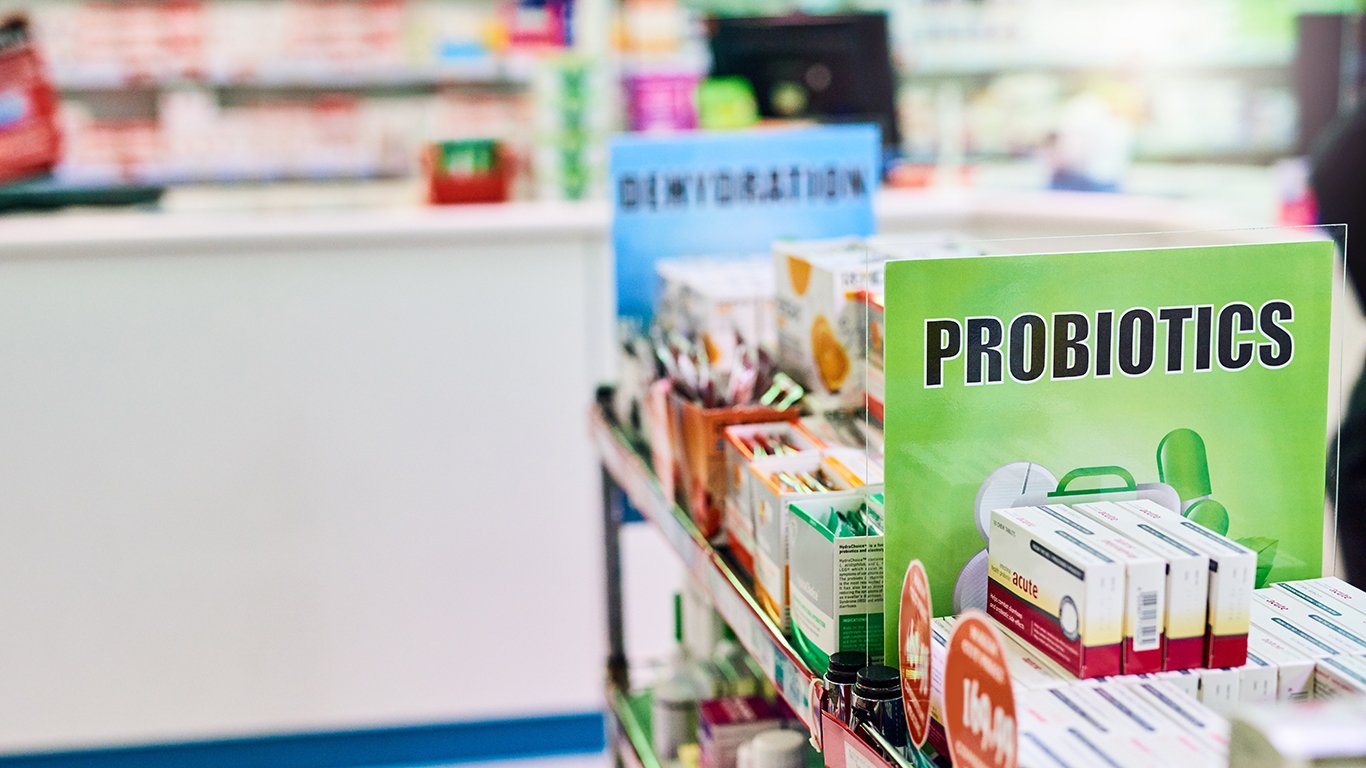
6. Probiotics are not safe for everyone
While probiotics are generally considered safe, a review of medical studies warns that reporting on possible side effects has been inadequate or incomplete. There are also concerns about the manufacturing of the live microorganisms as strict regulation is lacking because probiotics are sold as supplements, not drugs, and are not checked for safety by the Food and Drug Administration (FDA).
“Some people feel worse on probiotics because they already have too much bacteria digesting food,” Eitches said. People at higher risk of adverse effects, such as cramps and nausea, include those with compromised immune systems, cardiac valve disease, and short bowel syndrome, as well as premature infants.
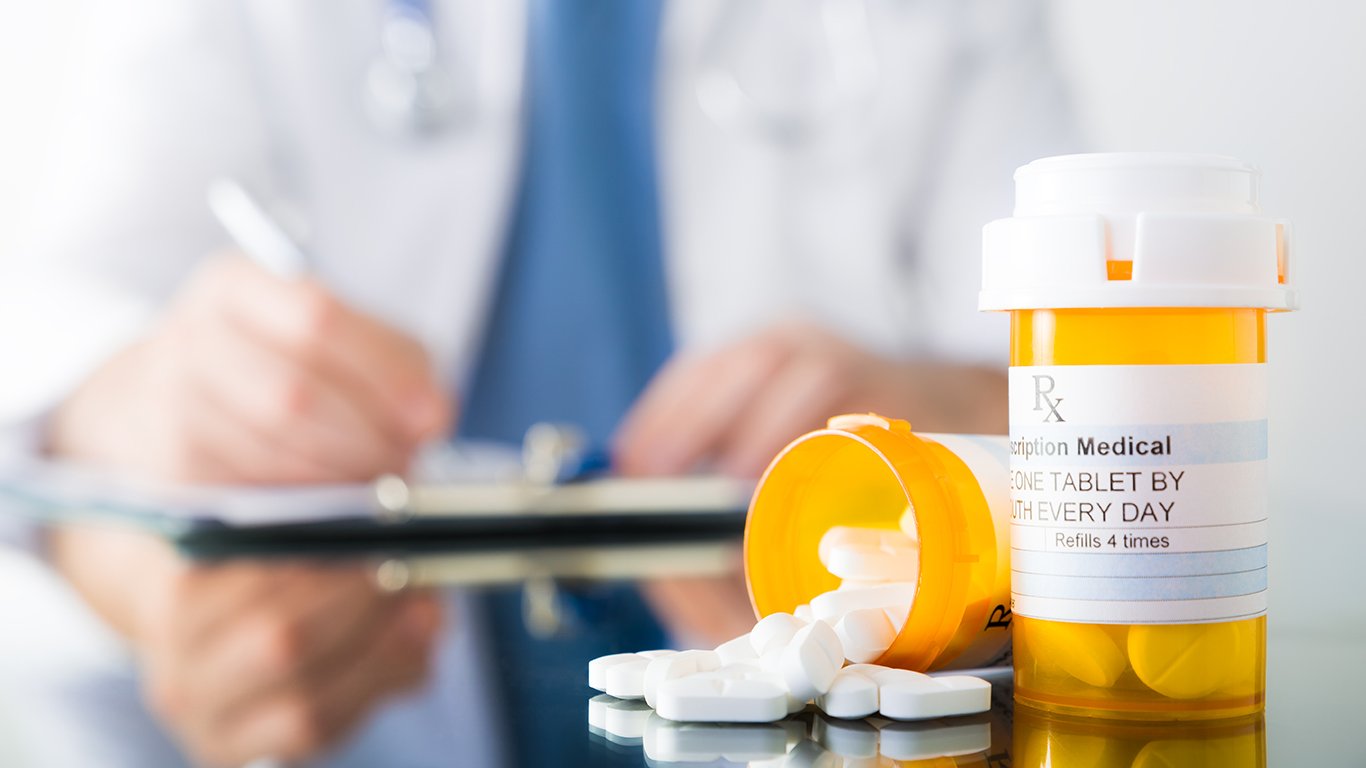
7. Probiotics and antibiotics
“I don’t really recommend probiotics unless you are really in a bad state [with leaky gut] or have been taking antibiotics for some time,” Place said. Antibiotics disrupt the gut flora, and weaken the protective barrier, resulting in an overgrowth of bad bacteria and pathogens. Probiotics help by replenishing the GI flora with nonpathogenic organisms. Probiotics have also been shown to prevent antibiotic-associated diarrhea. Separate research has found promising results for probiotics replacing or complementing antibiotic treatment for many diseases without serious health concerns.

8. Probiotics and cholesterol
There is mounting evidence that probiotics can help reduce cholesterol levels. In 2012, a study showed a new probiotic, a specific Lactobacillus reuteri strain, lowered low-density lipoproteins (LDL) “bad” cholesterol by almost 12%. Additional research has shown three other specific strains that have significantly reduced total cholesterol. Probiotics supplements don’t appear to have an effect on high-density lipoproteins (HDL) “good” cholesterol.

9. Probiotics and blood pressure
An increasing number of trials are focusing on probiotics and hypertension. Some studies show that they may help control blood pressure, but not by a lot and only if several species are taken for at least eight weeks. People with blood pressure higher than 130/85 benefit the most. Other research has shown a significant reduction in blood pressure, but there has been a lack of follow-up data.
Recently, researchers at the Massachusetts Institute of Technology found that a probiotic can help boost the beneficial bacteria in the gut that stop pro-inflammatory immune cells, which are linked to hypertension, from growing out of control.

10. Probiotic foods you may want to try
Yogurt is perhaps the best known source of probiotics, followed by sauerkraut. To benefit from these probiotics it is important to choose the unpasteurized versions. The processed kind has already killed the good active bacteria you need for your gut. Other healthy probiotic foods include miso soup, kefir, kvass, sour pickles, tempeh, kimchi, and kombucha.
